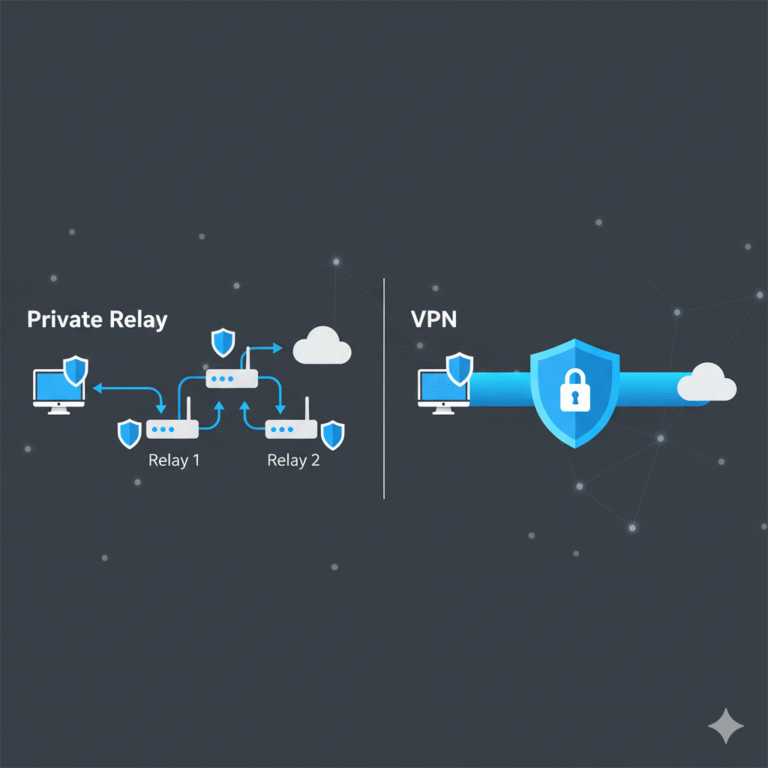Understanding whether is encrypted dns an alternative to vpn requires evaluating what each tool protects—and what it doesn’t.
✅ Q1: What does Encrypted DNS protect?
Encrypted DNS protocols—like DNS-over-HTTPS (DoH), DNS-over-TLS (DoT), or DNSCrypt—encrypt only DNS queries, shielding them from eavesdropping or tampering by ISPs or network administrators. This prevents DNS snooping and DNS spoofing.
Some encrypted DNS services also provide domain filtering (for malware, ads, trackers) at the DNS level.
However, the rest of your internet traffic—including websites visited, IP address, and metadata—remains exposed beyond the DNS layer.
🛡️ Q2: What benefits does a VPN provide?
A VPN (Virtual Private Network) encrypts your entire connection—not just DNS requests. It hides your IP address, masks your traffic from your ISP and other on-path observers, and enables geo‑restriction bypass.
VPNs also block DNS leaks (where queries bypass the tunnel) and typically use private DNS resolvers to prevent exposure.
🔍 Q3: Can encrypted DNS replace a VPN?
No. Encrypted DNS offers focused protection for DNS queries but does not encrypt all your traffic or mask your IP—so it cannot replace a VPN when your threat model includes location privacy or full‑session encryption.
Encrypted DNS is faster and often conveys fewer privacy risks—but it lacks key features like geo-blocking bypass, traffic anonymization, and full encryption.
In short: is encrypted dns an alternative to vpn? For DNS privacy, yes—but not for comprehensive security or identity protection.
📊 Comparison: Encrypted DNS vs VPN
| Feature | Encrypted DNS | VPN |
|---|---|---|
| DNS Query Encryption | ✅ Yes | ✅ Included |
| Full Traffic Encryption | ❌ No | ✅ Yes |
| IP Address Masking | ❌ No | ✅ Yes |
| Geo‑location Bypass | ❌ No | ✅ Yes |
| DNS Filtering (optional) | ✅ Often (ad/malware blocking) | ✅ Available in some providers |
| Speed / Latency Impact | Minimal | Moderate |
🔧 Q4: When should you choose one over the other?
Use Encrypted DNS when:
- You want to encrypt DNS to prevent eavesdropping or tampering.
- You prefer minimal latency and simple setup.
- Your privacy need is limited to DNS-level masking.
Use a VPN when:
- You need IP masking, region bypass, or full-session encryption.
- Your threat model includes ISP surveillance, traffic snooping, or geo-based blocking.
- You want added features like malware blocking, private DNS, or no-logs guarantees.
✅ Q5: Can they be used together?
Yes—using encrypted DNS alongside a VPN can reinforce your DNS privacy by reducing third-party exposure or improving filtering performance. But do not rely on encrypted DNS alone—it’s complementary, not substitute.
🔗 Related Reading & Internal Links
- AirVPN vs NordVPN: Which VPN Offers Better Security & Speed?
- How to Watch Jio Cinema in USA Without VPN – Easy Guide
- Is DNSCrypt an Alternative to VPN? Explained Simply
✅ Conclusion
Is encrypted dns an alternative to vpn?
Only for protecting DNS queries—not the broader internet traffic or privacy risks.
Encrypted DNS helps prevent DNS snooping and manipulation, but if you need full encryption, IP masking, and geo‑bypass capabilities, a VPN is essential.
Feel free to ask if you want deeper technical explanation, recommended providers, or step-by-step setup guides!



